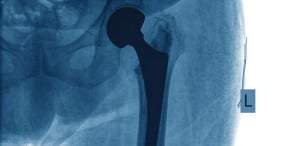
Although hip replacements are intended to help patients recovery mobility and lead more active lives, in some cases the opposite happens. When complications with a hip replacement are severe enough, and when the complication is caused by a defect in the design or manufacturer of the device, affected patients may be able to seek compensation for their injuries. The Zimmer Kinectiv hip replacement has been the subject of a recall, and it is expected that a Florida ZImmer Kinectiv lawsuit may be filed on behalf of affected patients.
If you or a loved one is experiencing problems with a Zimmer hip implant or any metal-on-metal hip replacement, contact Attorney Group for Florida today. We provide free, confidential, no-obligation consultations, and if you have case we can connect you with an affiliated Zimmer Kinectiv lawsuit attorney who can assist you throughout the legal process. The time to pursue a claim is limited, so contact us today.
How Does A Hip Prosthesis Work?
During hip replacement surgery, restoring joint stability, leg length and range of motion are all surgical challenges that can exist for the medical team. The Zimmer Kinectiv hip prosthesis, according to Zimmer Inc., uses a modular stem and specialized neck components that give the surgeon the ability to properly center the hip joint during surgery and address problems like joint stability. Additionally, since there are many different neck options available, this prosthesis can be catered to the specific anatomic differences between varying patients.
During surgery, where a Zimmer Kinectiv hip replacement is used, the entire hip joint is not removed and replaced with an artificial one. Rather, with this technology, only the damaged parts of the hip joint are removed and one of these medical devices is implanted to replace them.
Zimmer Kinectiv M/L Taper Recall
Despite the benefits associated with using a Zimmer Kinectiv hip prosthesis during hip replacement surgery, some of these medical devices had residues left on them during the manufacturing process due to a process monitoring failure, according to the U.S. Food and Drug Administration (FDA). These residues have the potential of causing adverse health consequences such as pain, infections, allergic reactions and in severe situations, death. Additionally, patients who had one of these implants used during a hip replacement operation may have to undergo revision surgery to replace the defective implant.
After receiving reports of problems allegedly caused by Zimmer Kinectiv M/L Taper implants, the FDA issued a Class I recall for these medical devices in June 2015. When the agency issues a recall for a defective medical device, they categorize it as either a Class I, Class II or Class III recall.
Class I recalls are the most serious type of recall and are issued when the use of a medical device or exposure to a certain product can cause either adverse health effects or death. Comparatively, a Class III recall, which is the least serious type of recall that exists, is issued when the use of a medical product is unlikely to cause those who use it to experience adverse health consequences.
In light of this recall, the FDA released some guidelines orthopedic surgeons should adhere to when deciding whether or not to use a metal on metal hip implant, including the Zimmer Kinectiv prosthesis, during hip replacement surgery. For example, the FDA recommends that these devices should not be used in patients who:
- Are female and of childbearing age
- Have known renal insufficiency that has reached severe levels
- Regularly receive high doses of corticosteroids
- Suffer from a suppressed immune system
- Have a known sensitivity to metal
When discussing the prospect of using a metal on metal hip implant during surgery, surgeons should make sure that their patients are aware of the different benefits and risks associated with Zimmer Kinectiv technology, the agency cautions. They should also remind their patients that these medical devices all need to be replaced at some point, and the longevity of this implant technology can be affected by a person’s activity level, age, weight and how well the surgery was performed.
How A Florida Zimmer Kinectiv Lawsuit Can Help

Device makers have a duty to design and produce safe products, and to warn of possible risks associated with their products. Failure to fulfill that duty can result in injuries to patients, and the device maker being held liable for those injuries.
Patients who are injured by metal-on-metal hip replacements may be entitled to compensation for damages resulting from injuries. Compensation can be based on factors including:
- Past and future medical expenses
- Pain, suffering, and mental anguish from an injury
- Loss of income or ability to work due to loss of mobility
If a loved one dies after complications from a metal-on-metal hip implant, family members may be able to pursue claims for wrongful death damages, including:
- Conscious pain and suffering of a loved one prior to death
- Loss of financial support
- Pain, suffering, and mental anguish resulting from the loss of a loved one
Affected patients and their families are encouraged to seek the advice of a Florida Zimmer Kinectiv lawsuit attorney to discuss their legal rights and options for compensation.
Contact Us For More Information
If you have been injured by a metal-on-metal hip replacement, or to find out more about a Florida Zimmer Kinectiv lawsuit, contact Attorney Group for Florida. You can fill out the form on this page, call us at the number listed at the top of the page, or email us at info@attorneygroup.com.
When you contact us, an attorney will follow up with you to speak with you about your case or answer questions that you might have. There is no cost or obligation to speak with us, and any information you provide will be kept confidential.
Please note that the law limits the time you have to pursue a claim for an injury. If you think you have a case, you should not delay taking action.
See our Frequently Asked Questions page for more information, and contact Attorney Group for Florida today.





